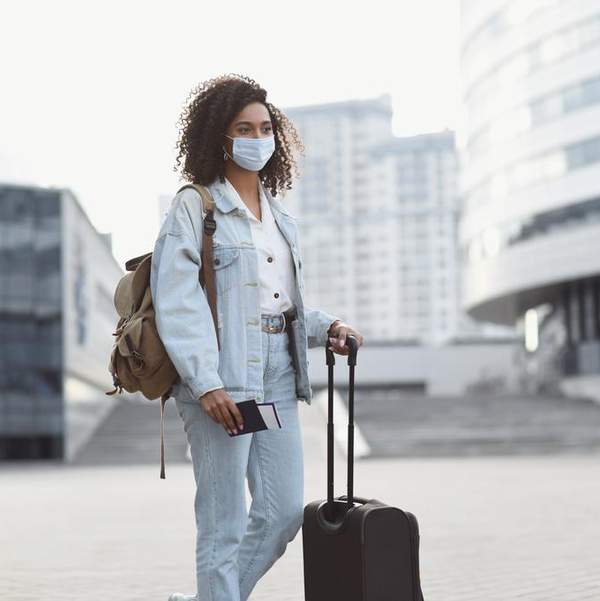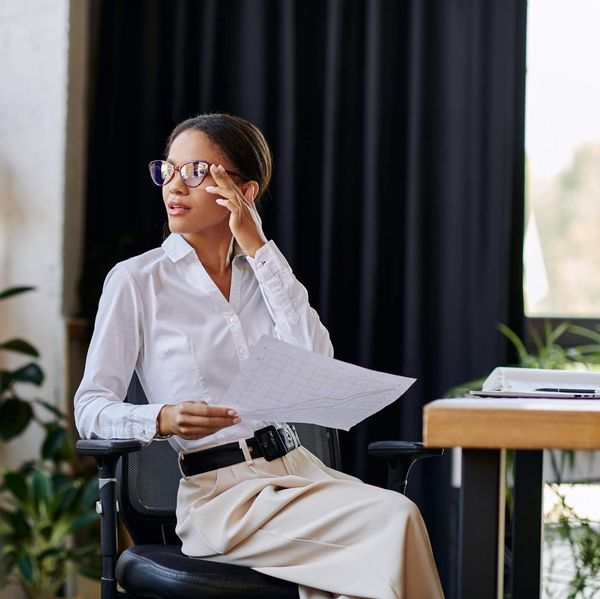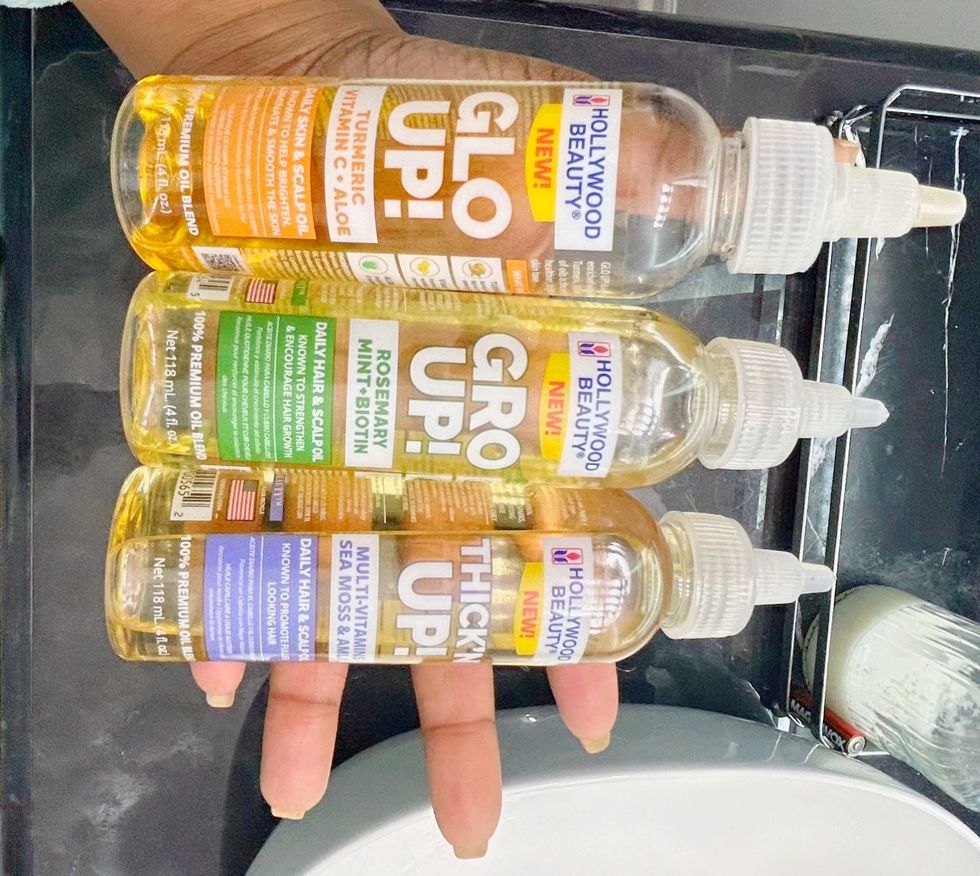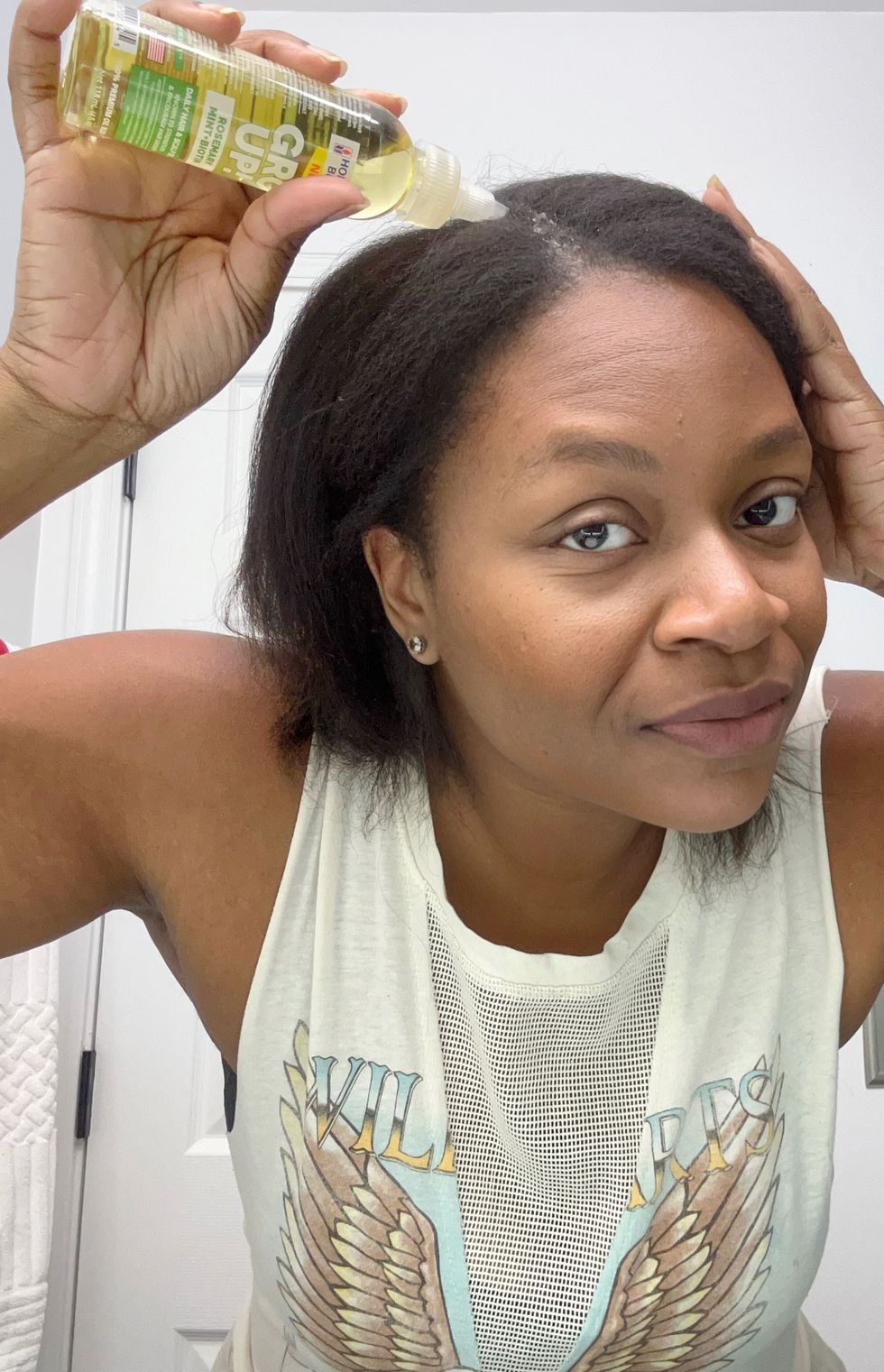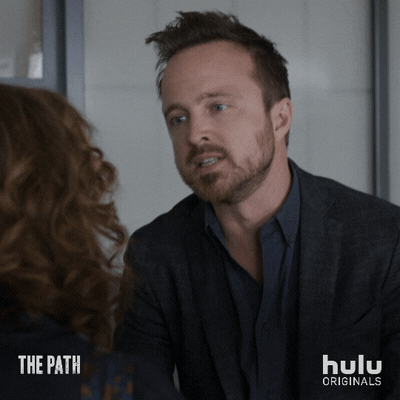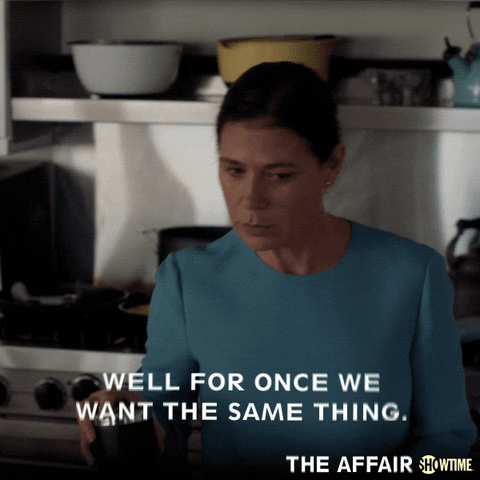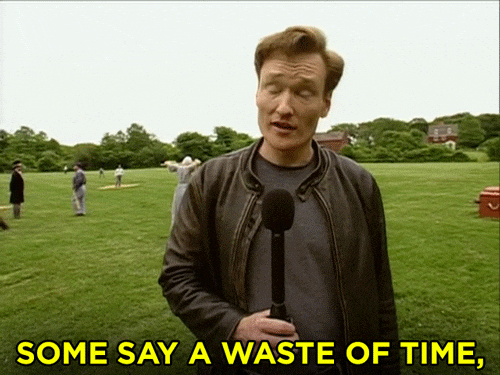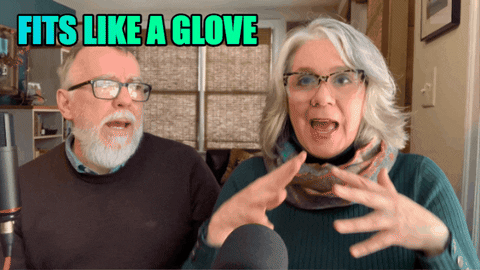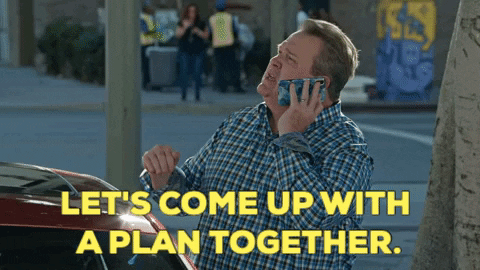Since COVID-19 became a global pandemic in March, the travel industry has taken a major hit. And it's understandable that many people still aren't traveling, even with borders open and stay-at-home restrictions lifted. But, for those of us who live abroad, enjoy taking trips, or have loved ones in other countries, travel during pandemic times is a hard but necessary decision to make.
I'm one of the brave—and to some, crazy—souls who decided to travel shortly after borders reopened. I had my reasons, and so do others who have made the choice to go abroad even with the pandemic still looming. Here are our stories:
(Quick disclaimer: This is in no way meant to encourage travel at this time. It's simply a resource to inform and engage those who might be considering it.)
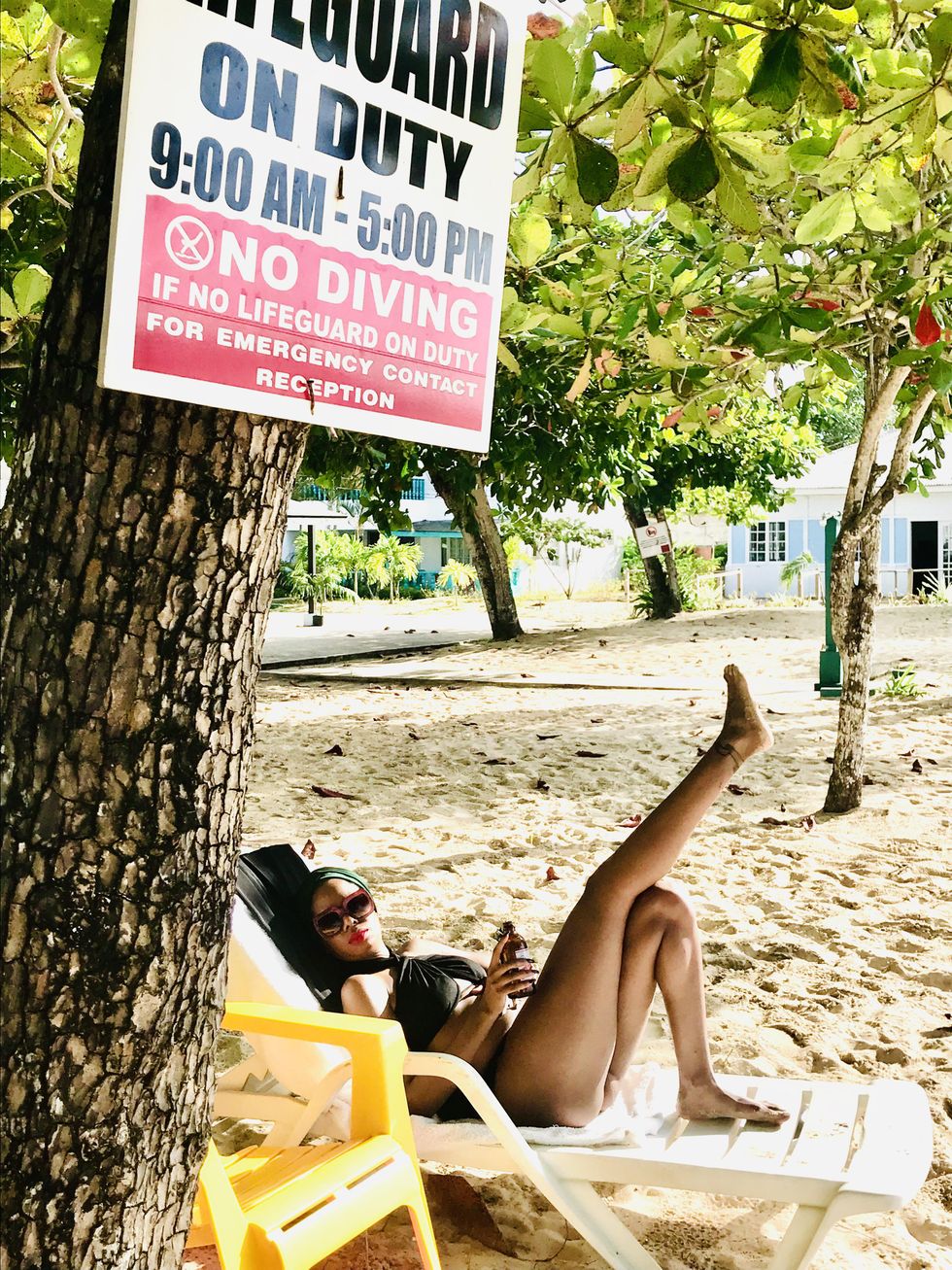
Image courtesy of Janell Hazelwood
Why I Chose to Travel During a Pandemic:
Janell: I've been in a long-distance relationship for three years, and not being able to see my fiance for months on end became devastating. Jamaica was like a second home, and frequent travel there had been my saving grace. I'd self-isolated for the whole month of March, and I'd been working from home even before the pandemic. I really didn't leave the house—even in the months thereafter—except the occasional walk around my yard or visit to the patio. When I needed food, toiletries, or groceries, I'd just have them delivered and left at my doorstep.
The pandemic brought a lot of hardship to my life, including loss of income, client reductions, and bouts of severe depression. I had flight credits, tickets that could be adjusted, and I was in good health. (I hadn't even had a common cold.) By September, the Jamaican government had reopened borders, so I decided to just go.
Jonathan: I've been in the hotel industry for the past 13 years. In March, I was furloughed as a result of COVID-19 and [was later] terminated. I had planned a trip to Peru in March and the week I was scheduled to depart, they closed their borders. Furthermore, I had planned a five-country tour to India, Thailand, Vietnam, Laos, and Hong Kong in April. Needless to say, that was canceled. So COVID changed my life personally and professionally.
I needed a mental break—with being furloughed, moving to a new city, being forced to stay in the house, and the racial tension. That was a lot of trauma to experience first-hand. I needed a quiet place to lick my wounds, recharge, and reevaluate some things.
Francesca: When the pandemic hit, I had plans to return to the Caribbean in time for carnival season. I am a full-time travel and lifestyle influencer, and I cover Caribbean travel pretty extensively. It was shocking to see borders close almost overnight. Some were giving as little as 48-hour warnings before halting flights.
"It was like my whole world changed overnight. It became especially painful as countries started announcing various travel bans."
I wanted to get back to see my partner in Martinique. We had been separated for so long, and I knew once borders started to open that I had to act quickly because just as soon as they had opened, they could very well close again.
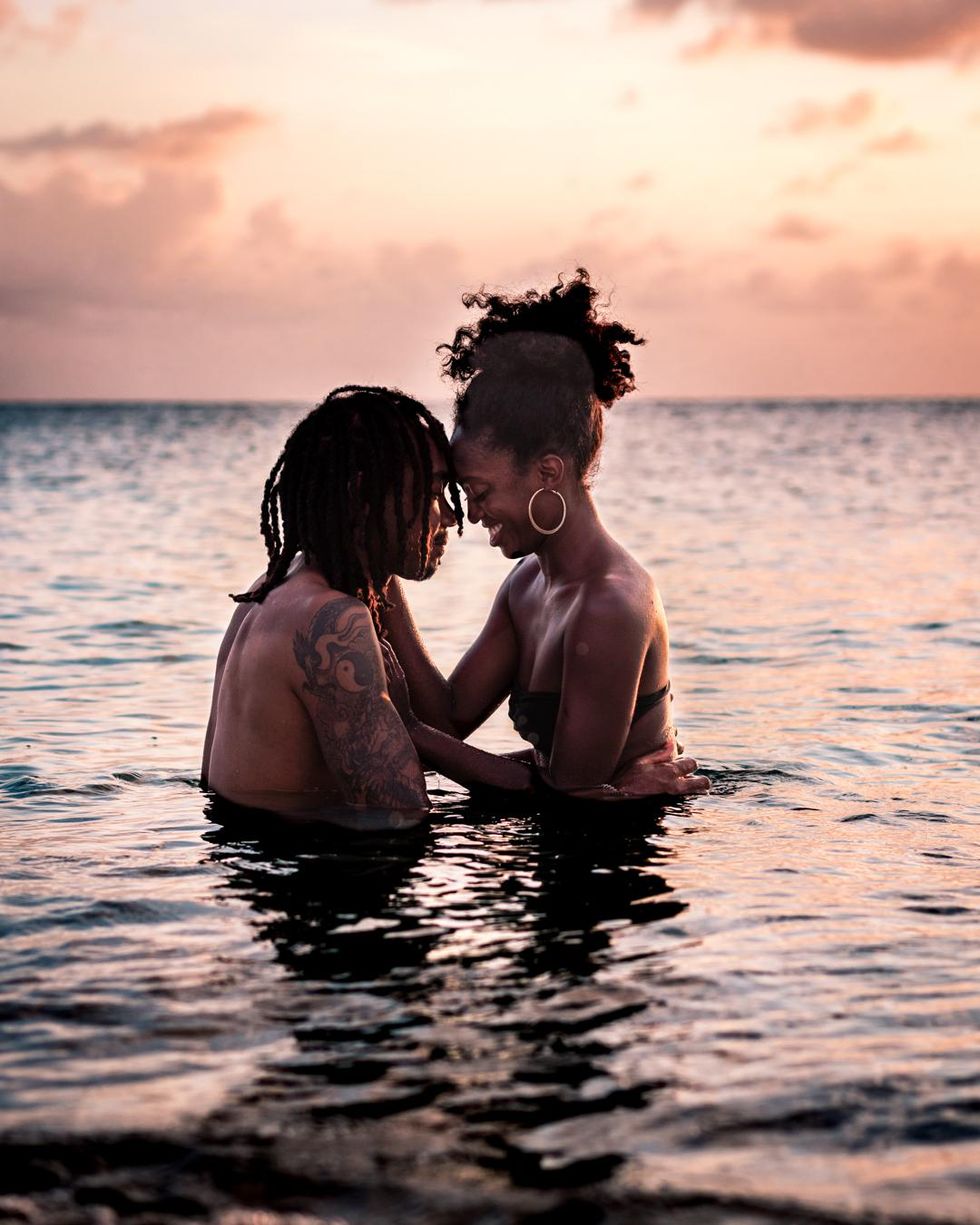
Photo by Willy Joseph-Louis
How to Prepare to Travel in a Pandemic:
Janell: Initially there was a bit of confusion on my part about the process. Early on, I'd heard rumors that you needed to download an app and get a COVID test before your trip, but I thought that was only for certain states. I was wrong. There indeed was—and still is—a pre-approval process for all travelers coming from the U.S.
Long story short, instead of confusing myself further by relying on YouTube videos and travel discussion threads, I went to the official authorities via VisitJamaica.com. This was the most detailed, accurate, and up-to-date resource. I had to get a COVID test, submit an application online with the negative test results attached, and then wait. The website indicated that it would take at least 48 hours for review, which was nerve-wrecking. It actually took four days, and I had to push my flight date back (yet again). I didn't mind because I'd be there for a little over a week, so losing a day or two wasn't a big deal.
The travel authorization was sent via email, so I screenshot it on my phone. I also printed out a copy of my negative PCR test, which was the test required at the time to move forward in the authorization process. I downloaded the JamCovid19 app just in case I'd be required to use it. (For more information on travel guidelines and restrictions, you can also visit the U.S. State Department site or the CDC website.)
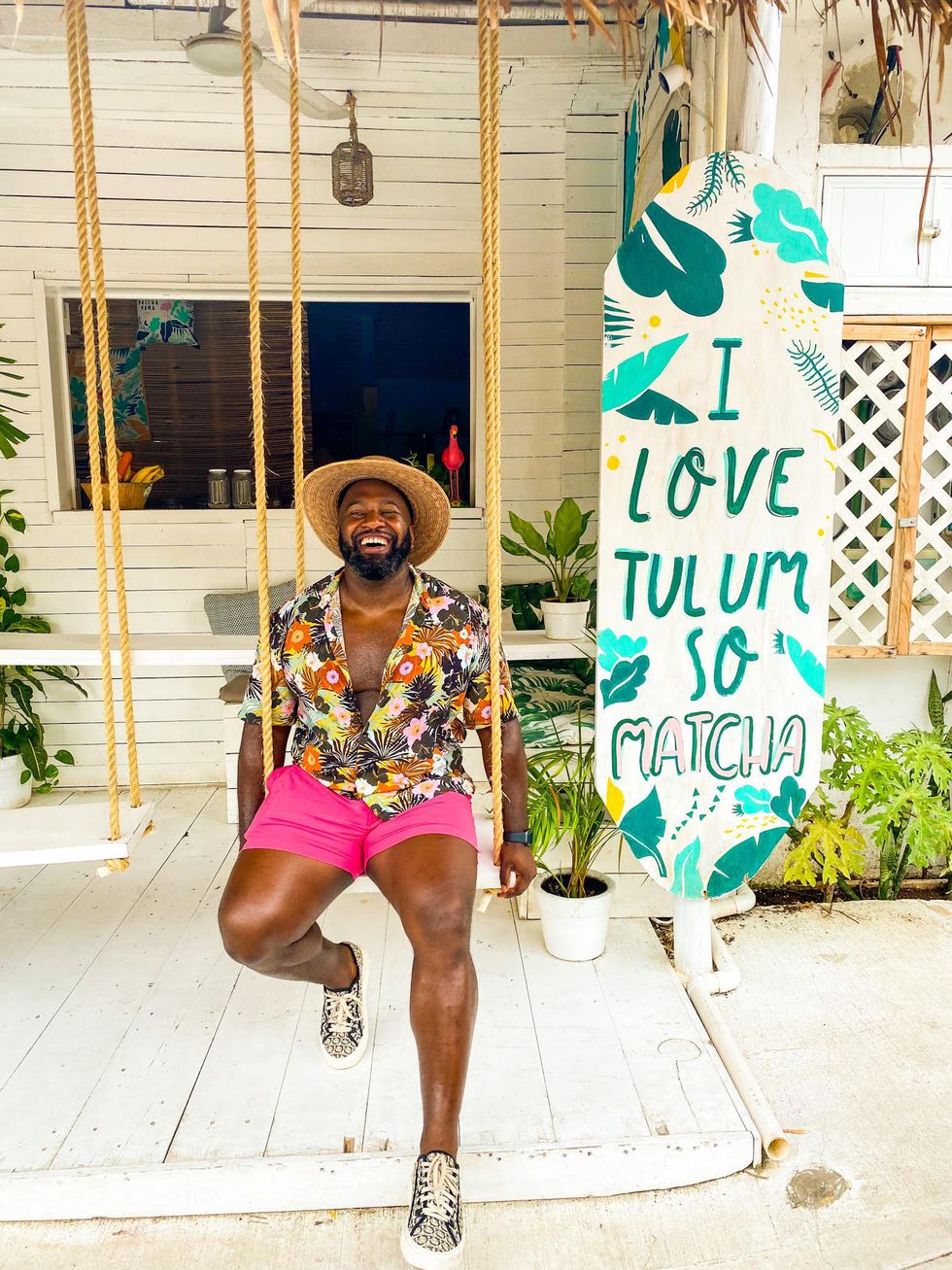
Image courtesy of Jonathan Curry
Jonathan: I went to Tulum, Mexico. [At the time], they didn't have any restrictions on travel nor did they require a COVID test to enter. The process was very seamless. I made sure I read all of the current government standards of the country. I packed several masks and Clorox wipes to wipe down my seats and table.
(For more information on current travel restrictions or requirementsin Mexico, please visit the U.S. Embassy and Consulates website here or the U.S. Department of State website.)
Francesca: I did a lot of research before booking my flight. I was more concerned with safety protocols than I was with flexibility. Ultimately it came down to two different airlines, and I ended up choosing the one that had a blocked middle seat over my usual airline where I accrue miles.
I brought a mask, of course, plenty of hand sanitizer, and my own food. Receiving a negative COVID test 48 hours before flying also gave me great peace of mind. I could assume that since it was an entry requirement, everyone I was traveling with most likely was negative as well.
(For more information on travel requirements and restrictions in Martinique, visit the CDC website or the U.S. Department of State website.)

Photo by Willy Joseph-Louis
What to Expect at the Airport & Upon Arrival:
Janell: I could not check in for my flight online, as I typically do. It was not allowed for international trips. I had to wait for the desk to open at the airport and check in with an associate. Other than that, the airport process and experience in the States was the same as it had always been except there were less people, you had to present your authorization document, and there were masks and social distancing requirements.
Upon arrival in Jamaica, I was delightfully surprised. The lines were typical but there was social distancing and an extra process added to the usual ones that involve customs and baggage claim. I'm always prepared to spend at least an hour at the Montego Bay airport during normal circumstances, and the extra process of checking my travel authorization document, getting information about my health and lodging plans, and listening to instructions on how I would quarantine only took an extra 30 minutes or so.
The officials and airline workers were kind, straight-forward, and efficient. My temperature was taken, and I was given a form with information on quarantining. I was also instructed about the "resilient corridor" limits I was to remain within during my stay and told what to do if I suddenly had any symptoms of COVID. (I wasn't told to download or use the app. I'm not certain as to why, but I kept it on my phone anyway. I suspect it was due to my length of stay and my choice to book at a compliant hotel.)
The experience was the total opposite of the nightmares of three-hour waits, scary soldiers, and double testing that I'd heard about.
Jonathan: Outside of the mask mandate, the airline didn't have any other restrictions in place. Fortunate for me, the middle seat was empty next to me and another young lady occupied the window seat. The flight was about 65-percent full. The airport was quiet, all the lines were very short, and there were limited food options in the concourse. You could cancel and get a flight credit with the airline.
Once I arrived, I had to keep my mask on throughout the airport. They had markers [6 feet apart] on the floor to make sure you weren't too close to your neighbor. Once through customs, I went through a non-intrusive temperature scan.
Francesca: I was impressed by how strictly the airline was enforcing their mask policy. I heard that they had added nearly 100 people to their no-fly list for non-compliance. They meant business!
I found that once it came time to fly, the airport was surprisingly empty. I think I interacted with less people throughout the flying experience than I do going grocery shopping.
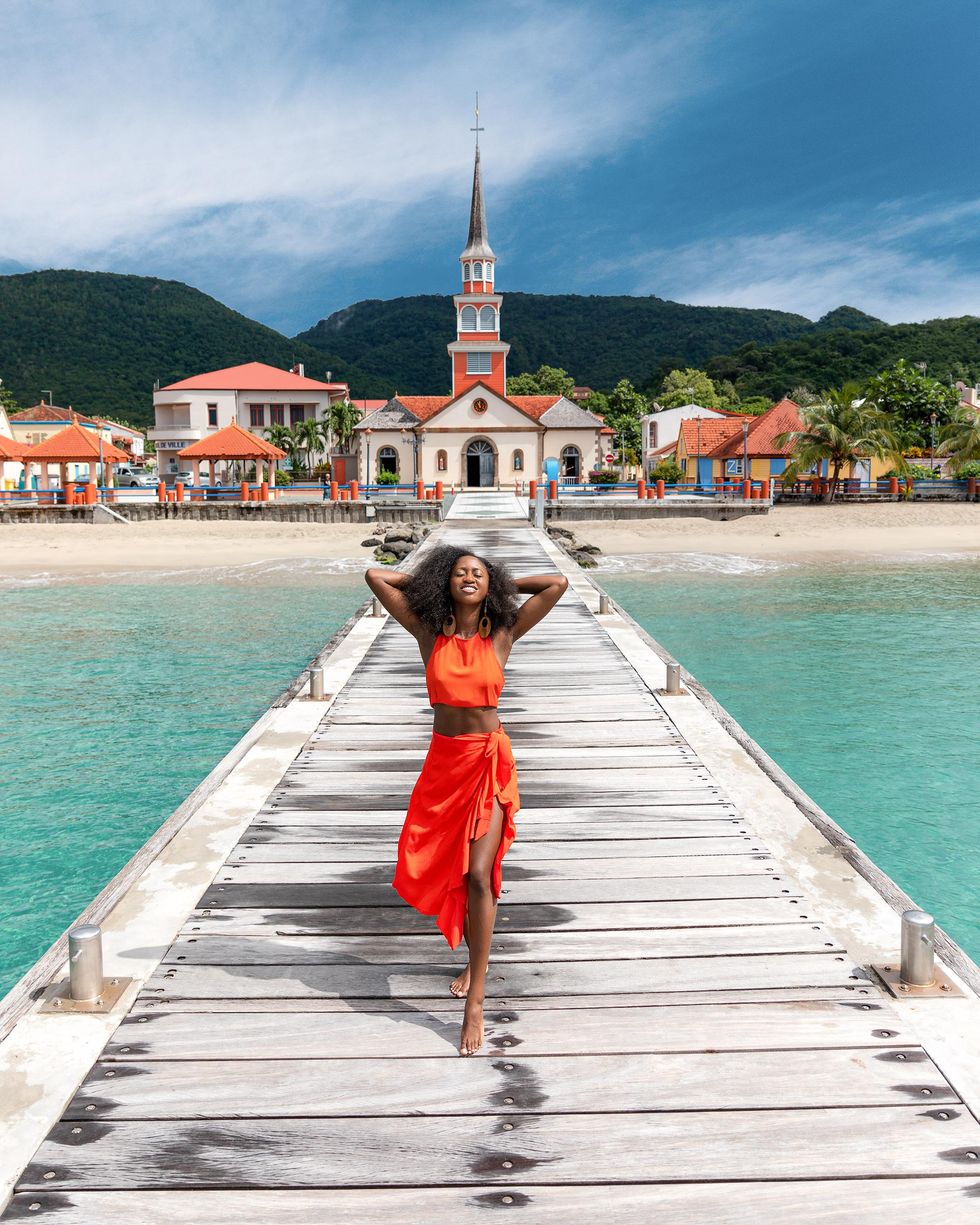
Photo by Willy Joseph-Louis
The Trip Experience:
Janell: Typically, I'm able to go wherever I want, and I'm all over the place. I might be in Kingston one weekend, Negril, Savanna-la-Mar, Hanover, or Lucea the next, then off to Montego Bay. That totally changed. It was literally like a ghost town compared to the usual, and a curfew was being enforced. Though I did not have to download the app and check in via video, I didn't feel comfortable going anywhere other than the nearby beach, adjacent shops, the hotel pool, and back to my room. My fiance would bring food or we'd order in. The cleaning staff disinfected my room daily, the few people on site practiced social distancing, and everyone wore masks. (Negril Beach Club is actually a favorite of ours and the vicinity to Seven Mile Beach is divine.) I also noticed that most places required temperature checks and hand sanitizer use before allowing tourists to enter.
At my hotel, the vibes were super-mellow—even for Jamaica—and there were hardly any other tourists to talk to or at least be around—even at a distance. It got a tad boring and monotonous after three days because I'm used to being able to go on excursions or local adventures, however, I remembered why I was there—to spend time with my fiance. That was good enough for me. Due to quarantining, I was also able to watch the landmark general elections on TV with him and witness the honking cars and small celebrations from our balcony—a historical moment for us to share.

Image courtesy of Janell Hazelwood
Jonathan: Tulum still had some action when I first arrived, however beaches closed at 5pm and there was an 11pm curfew.
Francesca: My experience landing was a bit strange because I'm used to landing at an airport and being immediately surrounded by people. There were no large groups eagerly awaiting loved ones, and the airport was nearly empty. I was pleased to see the people who were present were wearing masks and respecting social distancing guidelines.
Travel Tips for Traveling in a Pandemic:
Do your research. Don't just rely on hearsay or online videos. While they might be helpful, look to the official authorities about what's required for travel and the recommendations based on where you want to go. Also, pay close attention to the cancellation, business hours, or booking policies of hotels, airlines, major attractions, and travel agencies.
If you're required to pre-test for authorization, be sure to get the correct test at the correct time. As of recent, test results can't be more than 10 days old and there are specific types of tests required. Ask your healthcare provider or test administrator lots of questions and make sure you're getting the correct type at a certified center or lab. Print out your results and authorization as well.
Go with an open mind and release the selfish vibes. COVID-19 is still very real, and the fears of locals are warranted, so if you're not able to freely do the things you're used to doing on vacation, make the best of it. Be grateful for the front-line workers serving you at the hotels, beaches, airports, and restaurants, and show that gratitude by tipping well and following protocols.
When in doubt, just stay home. If it's not an emergency or there's so much involved with planning that it causes you and your family unnecessary stress, wasted time, and extra money, reconsider traveling at all. Many airlines, hotels, and travel agencies are offering options for cancelling or rescheduling trips, and to be honest, this might be the time to do a domestic solo trip in your town or to focus on other goals.
Jonathan:
Have a plan B. With restrictions returning, have another plan just in case things get canceled.
Assess your tribe. [This is] your community that you come in contact with on a daily basis. Is anyone in your tribe high-risk as it relates to COVID? Are you able to quarantine in isolation if you contract it? We all have to do what we feel is best for us while still considering the community we will return to. Get yourself tested before and after travel, for your own safety and the safety of others.
Francesca: The No. 1 thing is to comply with local health regulations and consult official websites frequently. The situation is constantly evolving, and staying on top of it is critical. And please, wear a mask and wash your hands frequently!
For more of Janell, Jonathan, and Francesca, follow them on Instagram @janellirl, @thejonrobert, and @onegrloneworld.
Featured image by Shutterstock



